Business & Management
EfD Takes Research findings to Parliament: Advocates for Regulatory and Policy Framework to Support Transition to Clean Energy for Households
Published
2 years agoon
By
Jane Anyango
A team of researchers from Makerere University Centre for Environment for Development Initiative (EfD-Mak Center) on Friday 3rd May 2024 went to Parliament to share study findings on Uganda’s heavy reliance on fuel wood and charcoal to guide the country and, in particular Members of Parliament in their policy formulation.
Research fellows Prof. Edward Bbaale, Dr. Peter Babyenda, Dr. John Sseruyange, and Dr. Nick Kilimani undertook a study titled, “Promoting Inclusive Clean Energy Transition in Uganda: Evidence, Challenges and Policy Options”.
The team studied people’s perceptions of cooking energy systems in Uganda, through a document review and Focused Group Discussions, their level of knowledge about the possible effects of using energy systems, the challenges they face when using various energy systems, and their suggestions for promoting the use of clean energy.
Findings indicated an over-reliance on biomass across the country with charcoal being the major energy source in the low-income suburbs of Kampala. Evidence also points to the inherent fear of electricity and liquid petroleum gas, weak awareness, and poor regulatory systems to be the leading obstacles to an energy transition process.
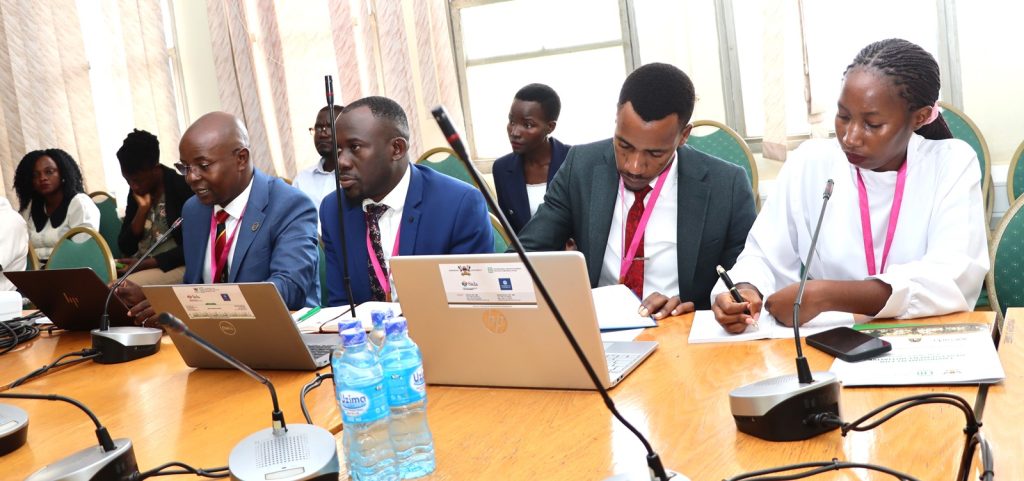
The team, led by the Centre Director, Prof. Edward Bbaale, who is also Director of Research and Graduate Training at Makerere University interfaced with the Members of Parliament on the Committee of Environment and Natural Resources. Bbaale presented on, “Biomass Dependence and Green Transitions: Implications for Policy”.
“Parliament is a very important arm of government, responsible making laws, performing oversight role and therefore our research findings must be shared with them so that they use the information that we have generated through research for them to do their legislative function better.
“Makerere is a research intensive University but at the same time, the main objective of the current strategic plan is to generate as much research as possible. But number two, is to package this research and market it and share it with the rest of the country so that it can be useful and cause a policy and behavior change”, Prof. Bbaale justified the meeting.
Sharing the issue of green transitions, especially in the area of energy transitions in different sectors, as critical, Bbaale told MPs that over 3 billion people globally depend on biomass for energy which exacerbates climate change, forest loss, water scarcity and land degradation.
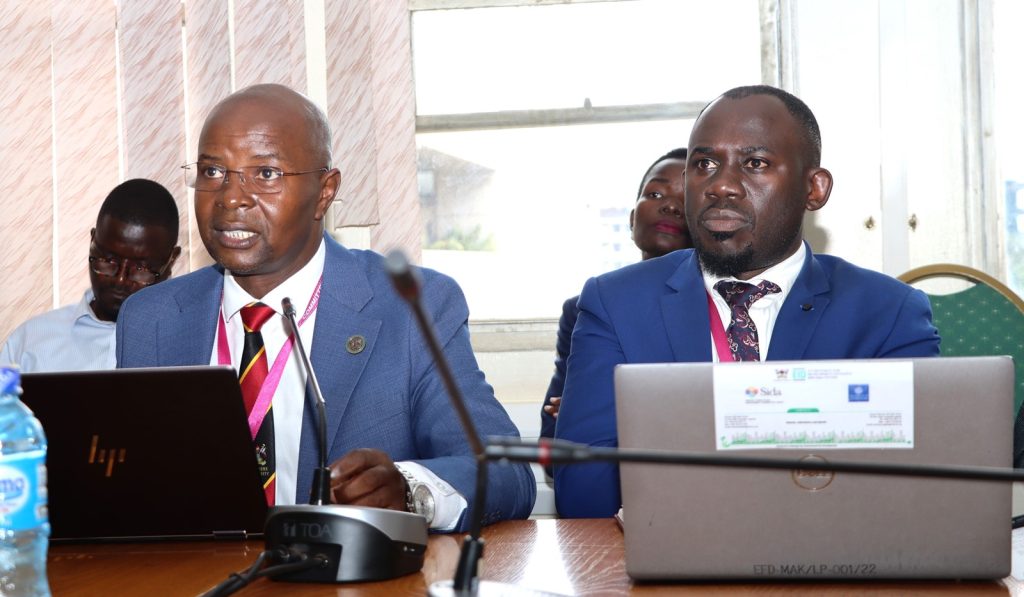
With a projection of the rise in the Global population from 8.1 to 9.8 billion by 2050, Bbaale decried that more than 700 million people survive on less than $2.15 daily which leads to increased reliance on biomass.
In Sub-Saharan Africa, the professor said over 900 million people use biomass for cooking while Uganda has high reliance on biomass with 85% of the households using firewood, 13% using charcoal .
Charcoal burning and firewood collection according to Bbaale is partly responsible for Uganda’s rapid declining forests cover. Uganda’s Forest cover dropped from 20.4% in 1990 to 9% in 2015, driven by energy needs. Currently forest cover stands at 13.3%. Other factors like logging, farming and development also contribute to forest loss.
Bbaale also informed parliamentarians that heavy dependence on biomass energy poses health risks particularly to women and children. Household Air Pollution, according to Bbaale affects over 20 million Ugandans, causing 13,000 deaths annually, with women and children bearing the brunt.
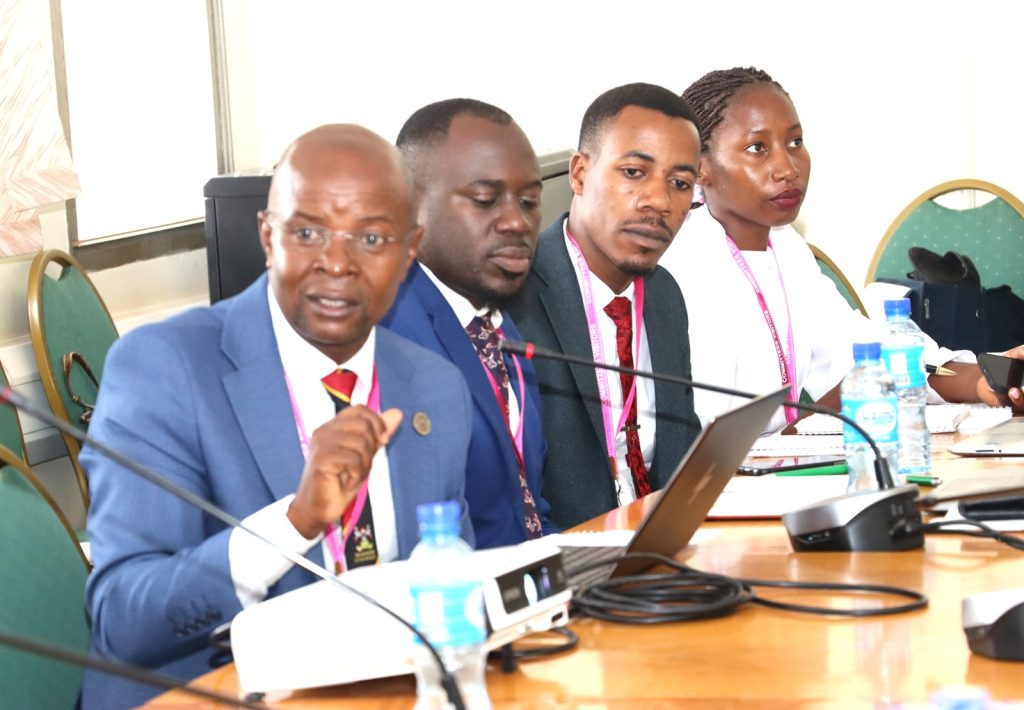
“…firewood and charcoal are dirty sources of energy. Respiratory diseases, eye diseases, and others can be attributed to the household air pollution, but as a result of cooking, we also contribute to the bigger greenhouse gas emissions, then we see climate change manifest in extreme weather conditions like prolonged drought spells, floods and very heavy rainfall beyond the normal, and this has far-reaching effects on our economy and environment”, He explained.
Bbaale informed the committee about the social economic implications of high dependence on biomass. He said, wood fuel collection distresses child schooling in rural areas as children lose time collecting wood fuel, affecting their education.
Economically, Bbaale told Members of Parliament that dependence on biomass as an energy source impedes on female labor force participation. Ugandan rural women Bbaale reported spend 9.1 hours per week on fuelwood collection, compared to 2.5 hours for men, hence reduces womens’ time for employment and education and this perpetuates gender inequalities in the labor market
In addition to increasing Green House Gas emissions, Bbaale explained that heavy reliance on Biomass increases Uganda’s vulnerability to climate shocks. Uganda is highly vulnerable to climate shocks and ranks 13th position out of 192 countries in terms of vulnerability with low capacity to deal with climate change effects ̶ 160th/192.
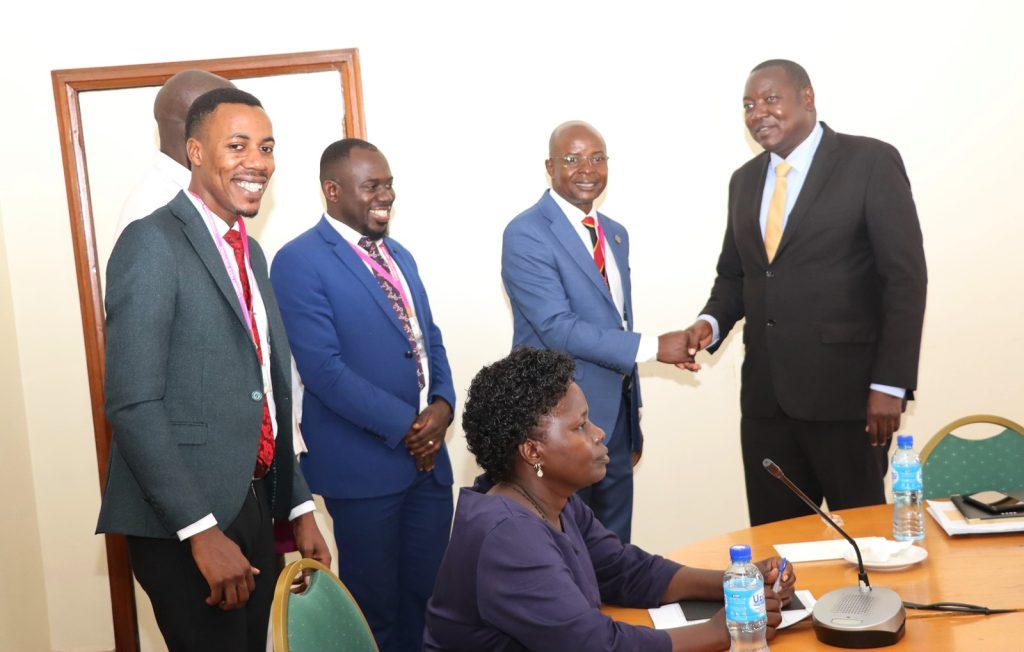
Green Transitions
The Director proposed an economy free from fossil fuels, sustainable consumption of natural resources, less biomass energy dependence and low-carbon solutions as stipulated in Uganda’s Vision 2040 and NDP III and the Nationally Determined Contributions – a climate action plan to cut emissions and adapt to climate impacts.
Within Energy, Bbaale expressed the need to increase the use of renewable energy, improve efficiency of biomass production and use, encourage industrial fuel switching, increased energy access for households and promote cleaner cooking technologies.
Noting that Uganda’s Gross National Income per capita is $930 and close to World Bank’s Lower Middle-Income Status ($1,086), Bbaale said the energy ladder indicates a delayed transition towards clean energy.
With 85% households relying on firewood, 13% depending on charcoal and only 2% using clean energy sources like gas or electricity, Bbaale attributed the delayed transition to challenges mainly availability, affordability, reliability, efficiency, and cultural considerations.
In terms of availability, the Professor told the committee that about half of Uganda’s population has access to any form of electricity largely due to the rural electrification program with a number of households not connected to the grid due to high costs and selective distribution of electricity lines.
Bbaale also reported that whereas the National LPG Supply Infrastructure Development and Promotion targets improving the LPG supply, storage and demand the main gaps include high initial costs, limited refilling centers especially in rural areas, high refilling costs and counterfeits.
In terms of reliability, Parliamentarians heard that only 24% of Ugandans have access to more than 4 hours of electricity per day with inadequate voltage in some areas and limited LPG refill centers.
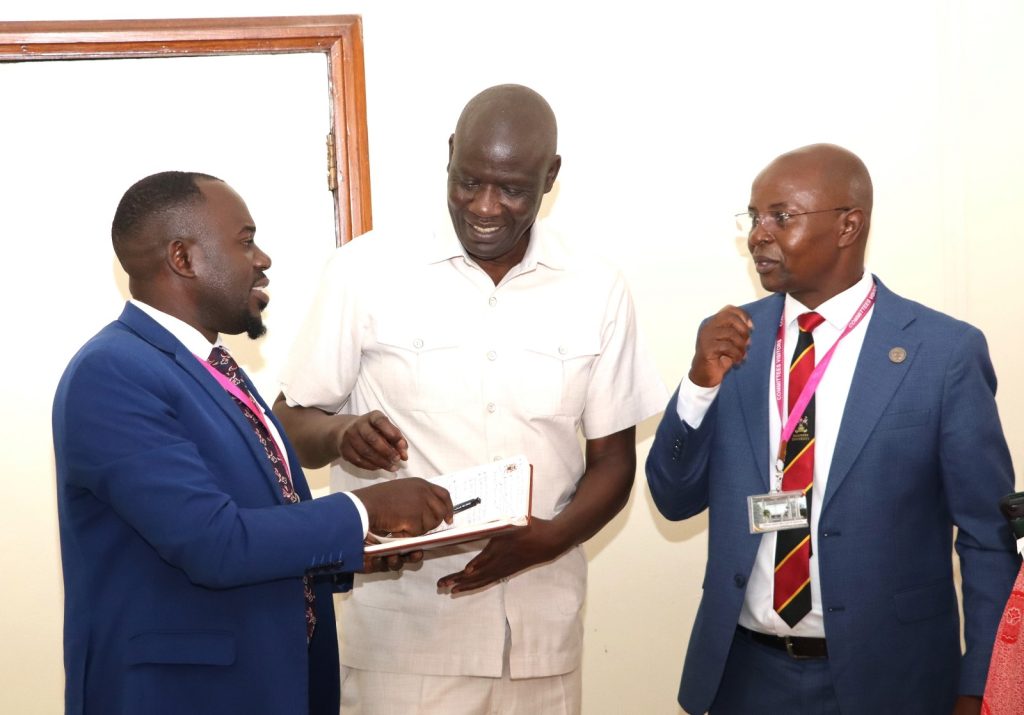
Policy recommendations
Prof. Bbaale tabled recommendations on infrastructure development, financial incentives, sensitisation and awareness raising, capacity building and technical assistance as well as regulatory and policy framework.
On infrastructure development, Bbaale implored government to invest in expanding electricity grids to reach remote rural areas, establish even distribution LPG refilling centers, develop energy storage infrastructure for reliable power supply from renewable sources and, address rural electrification challenges such as connection costs and distribution issues.
Speaking on financial incentives, the professor asked government to provide subsidies and grants to reduce initial and refilling costs, offer low-interest loans for affordable clean energy technologies, implement tax incentives to encourage clean energy investments especially by the private sector and also provide flexible payment plans or pay-as-you-go schemes for clean energy systems to improve accessibility for financially constrained rural populations.
“We must go green and if we must green our economy, a very big part of it is energy transitions. And the question is, what are the alternative sources that are cleaner? It is electricity, it is LPG. And then will the households afford?
“And as a result we are saying, legislators play an oversight function, they come up with the rules and regulations that govern our country. What can be done, for example, to make clean energy sources affordable? Let Members of Parliament think about some financial incentives, maybe some very cheap loans, advocate for subsidies from government, can be to increase their availability by encouraging the private sector by reducing taxes that overburden them to do business” Bbaale explained.
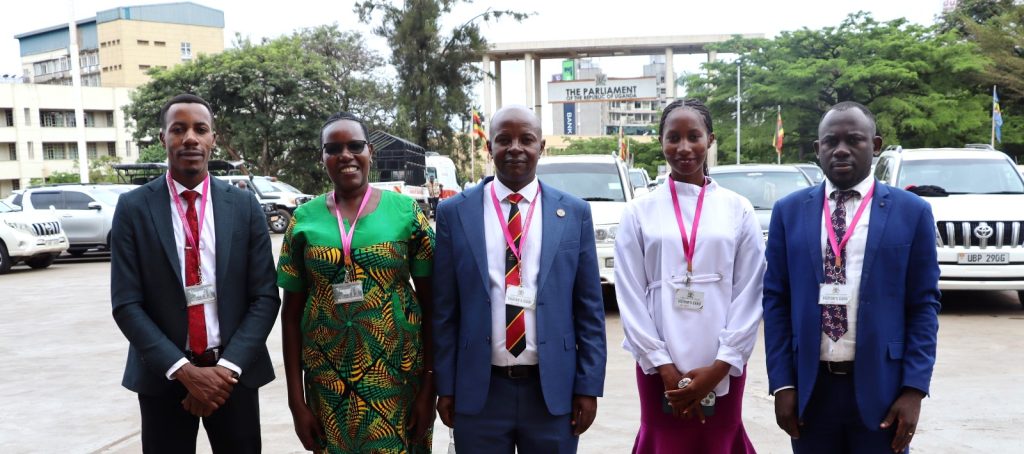
He also recommended sensitization of the public to raise awareness about subsidies (cooking tariff for electricity in Uganda) and clean energy alternatives, like Tanzania’s national cooking conference and to encourage mindset change towards LPG and biogas, led by Parliamentarians.
“For people that use electricity for cooking, very few households, including those that are around Kampala, know about electricity subsidy. And the Minister of Energy is of the view that electricity is the cheapest source of power these days. Even households that are well-educated, are not aware of what government has done in promoting the clean cooking”
“And being opinion leaders from their different constituencies, Members of Parliament can also act as champions of mindset change wherever they are. Maybe they can be in their constituency, act as a center to demonstrate some of the clean energy sources. How is it working? How is it possible?” Bbaale said.
Government according to Bbaale should offer training programs to rural communities on clean energy technologies and maintenance, provide technical support for installing and maintaining clean energy systems and facilitate knowledge-sharing platforms for rural communities to learn from successful projects.
Bbaale also proposed regulatory and policy frameworks in regard to standardization. He stressed the need for a law and policy in regard to prices and standards with Uganda National Bureau of Standards to rule out counterfeits.
Parliament pledges to support policies on clean energy transition and engage line ministries to collaborate with EfD as a research arm
The Chairperson Parliamentary Committee on Environment and Natural Resources, Dr. Emmanuel Otala who is also Member of Parliament for West Budama South Constituency, Tororo District commended the university dons for sharing the research findings to guide policy formulation.
“And I must say that they are spot on in that their research findings are pointing the country to protection of our environment. And as they concluded by saying that yes, God always forgives, human beings sometimes forgive, but nature will never forgive if we do something. I think that was a fundamental statement, really,” Dr. Otala recalled.
Citing recent and occurring disasters that have ravaged the country due unsustainable use of the environment, Dr. Otala emphasized the need to balance development with environmental conservation.
“Most of our people still use firewood, biomass for cooking. And this is not the right way to go. We must look at renewable sources of energy and how to conserve our forests and that is how they bring in the issue of Liquefied Petroleum Gas.
Unfortunately, government already made an attempt, but at a very small scale. And so, we need to scale up this project of substituting the use of biomass for cooking with the Liquefied Petroleum Gas and even use biogas from homes.” Dr. Otala noted.
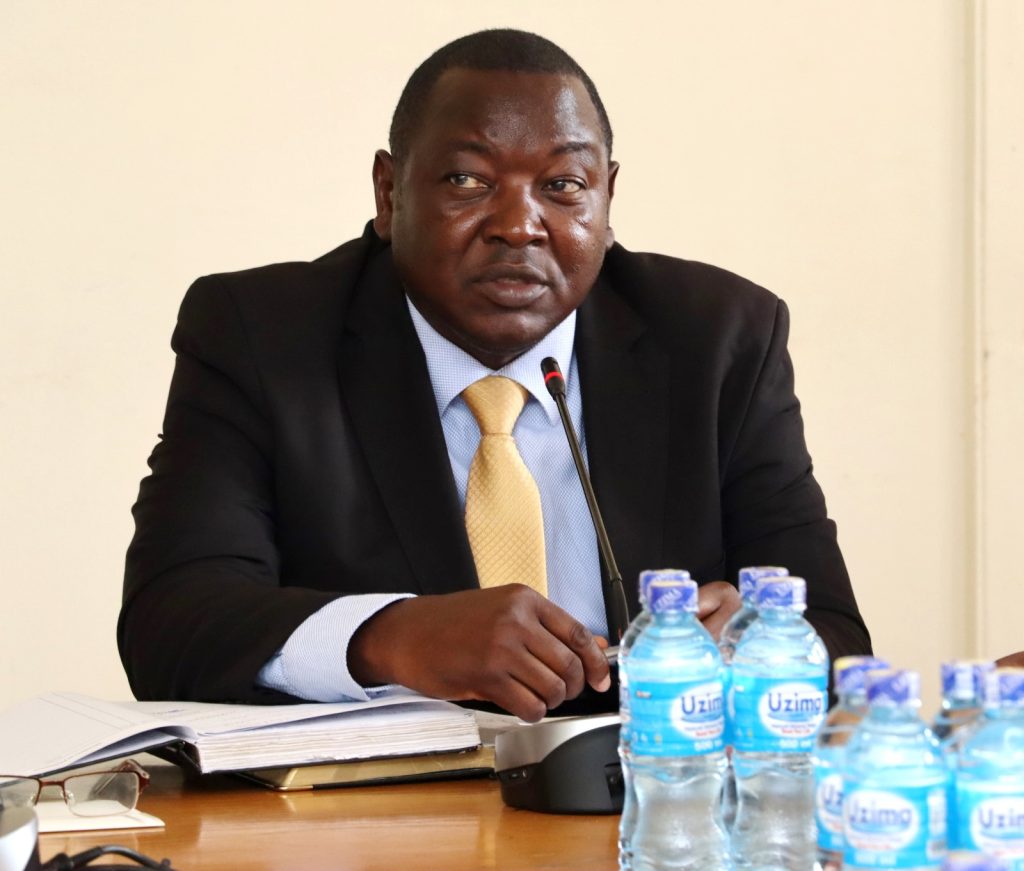
Otala pledged total commitment to working with the EfD-Mak center and line ministries to support policies to a green transition.
“What the EfD is doing is in keeping with the current global initiative of trying to address climate change, of conserving the environment, and the turning away from the use of fossil fuels to use of renewable energy for cooking. And we think that as policy makers, most of the policies they recommended are very good and we are going to take them up”. He said.
Dr. Otala also pledged to share the research findings with the Minister of Water and Environment and his team, discuss the proposed policies and interventions and interest the ministry to utilize EfD as a research arm.
“The use of evidence-based policy is critical, and I can’t explain it more. So we shall definitely bring it to the attention of the Minister that in Makerere there is this initiative.
…we shall definitely help you to highlight the need for collaboration in terms of research, but also translating research findings into actual activities on the ground for the benefit of our people based on research”. Otala affirmed.
Members of Parliament speak out
Shadow Minister for Environment and Energy who is also Woman Member of Parliament representing Kiboga District, Christine Kaaya Nakimwero requested the EfD Researchers to research on the census tools and fossil fuels that the country is looking up to.
“One, we have not looked at the census tools for the census that is going to begin on 10th May this month, we would request you to look at the tool urgently and see if ownership of energy tools in households, for us to know what households really use.” Kaaya submitted
Kaaya also requested researchers to appreciate that Uganda is set to make money from fossil fuels and to research into emissions resulting from different energy sources and initiatives like afforestation.
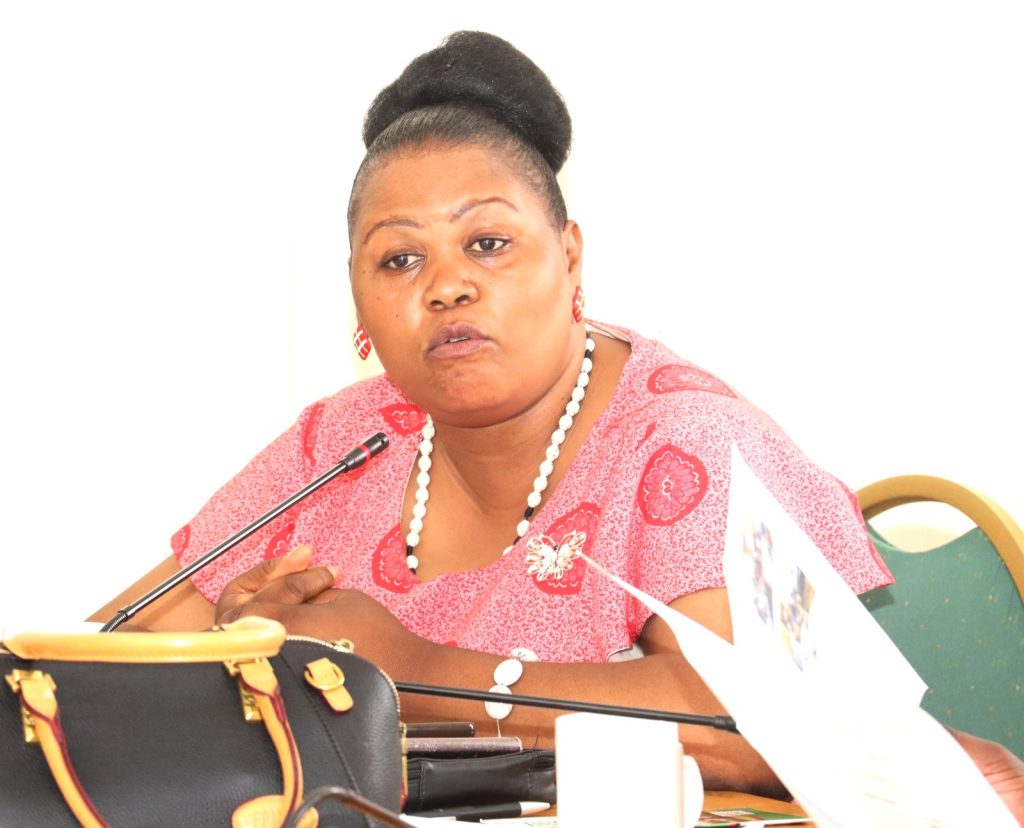
“How much emissions come from production of one liter of fossil fuel? And what do we need to do to offset emission from one liter of fossil fuel? That is the exact message we’re supposed to share with our people. People need to know, if I plant five trees, does it help?” She pondered.
Kaaya also decried the issue of counterfeits in the energy sector calling on the committee members to discuss more on how the Uganda National Bureau of Standards can be supported to check counterfeits. She observed that affordability and culture are some of the factors hindering the adoption of clean cooking energy.
“There is a gender aspect in making people run away from use of biomass. I’m supposed to cook. Without food, there is no marriage. So, when we are phasing out biomass, we must have that at the back of the mind. I’m in Kampala, you have refused people to bring charcoal. I’m here in Kampala, I’m married, I’m supposed to cook, I don’t have LPG, I cannot afford electricity.
“And how long are we going to wait to resolve this matter? You cannot just stop charcoal vehicles in Kiboga, please don’t proceed to Kampala. How do you expect us to make our husbands eat and the entire family? If you cannot answer that, then let’s go slow. We need to advise the President very appropriately.” Kaaya said.
Recently, the President of Uganda banned the commercial making, transportation and selling of charcoal to safeguard the environment.
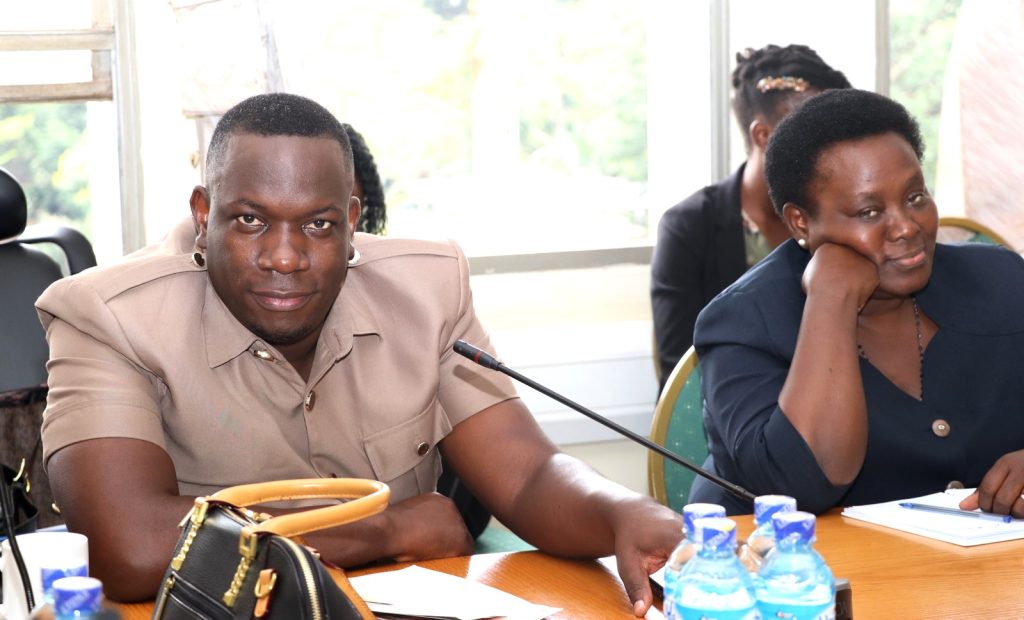
The other cultural barrier to adoption of clean cooking energy according to Kaaya is the method of food preparation. In Buganda and other cultures that eat bananas, one is not a wife if she cannot prepare bananas, squeeze and leave them on fire in banana leaves for long hours until it is soft before serving.
“It is that cultural practice which is becoming very difficult. The electric cooker cannot accommodate banana leaves. After squeezing bananas, you are supposed to leave it on fire. It becomes very soft, such that even somebody who will come at midnight, finds it soft and hot. That is what we are battling with in our cultural settings. With this new gadget, you can’t have it. And then, in other words, you are not a good wife.” The MP said.
Hon. Orone Derrick Member of Parliament from Gogonyo county encouraged researchers to put more effort on the media awareness to the public.
“We as policy makers, we shall really support you but put more awareness of the media to the public that’s the only encouragement. I want to thank the chair for organizing these researchers to come and tell us, educate us, sensitizing us about the clean energy”. Orone said.
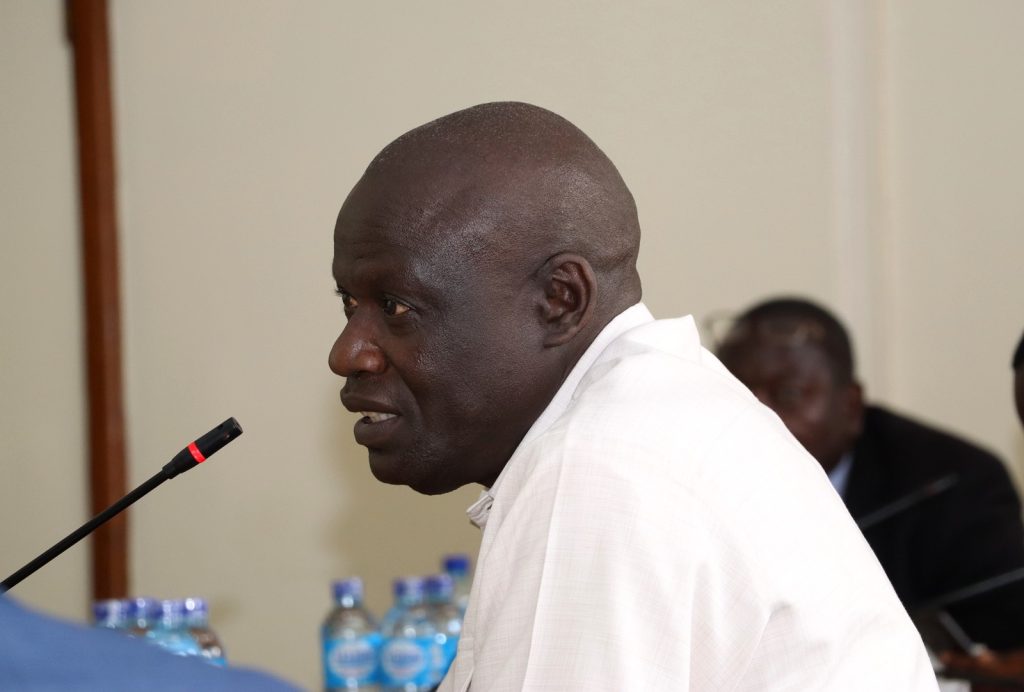
Hon. Apollo Yeri of Tororo Municipality implored the university to look into cheaper clean energy technologies like the use of biogas from animal and human waste.
“There are some people who have started to manufacture biogas themselves locally using cow dung and pit latrine. It is a bit cheap to produce. So if you encourage them to manufacture their own biogas, and maybe teach them how to store – because they don’t store anything, just use and sometimes they overuse. If they can store, they can even sell excess and more people would be encouraged”, Yeri suggested
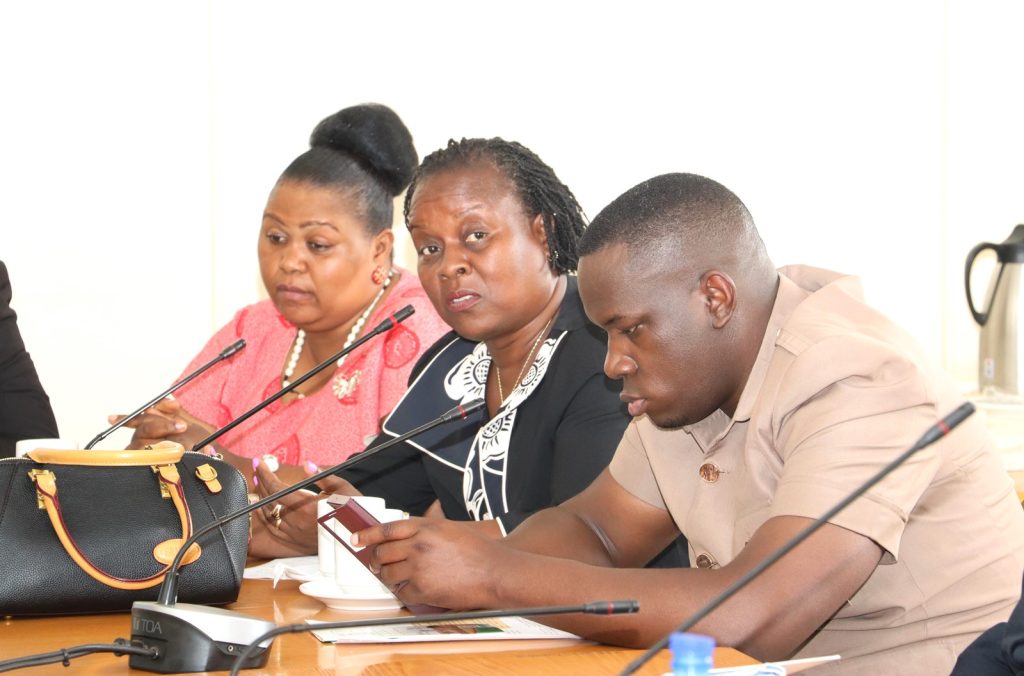
Hon. Clare Mugumya, the District Woman Representative of Isingiro was hopeful that Uganda’s oil wells from Kirenga would provide cheap gas for the population. She noted that other clean energy sources and gadgets are costly for ordinary Ugandans.
“Otherwise, behavior change alone will not be possible, even if we sensitize, unless the issue of affordability is seriously addressed by government”. she said.
Jane Anyango is the Communication Officer EfD Uganda
You may like
-


Call For Applications: MakNCD Masters and PhD Training Opportunities
-


Press Statement: Makerere University Congratulates Former Staff and Students on Successful Election to Public Office
-


Mak Hosts NCHE Competence-Based Education Standards Validation Meeting
-
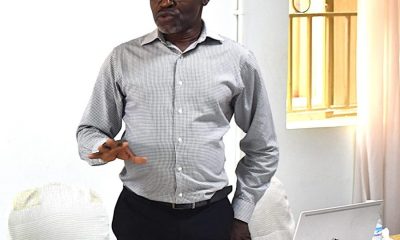

Enhancing Data Quality: NutriFishPlus Research Assistants Retooled Ahead of Baseline Survey
-
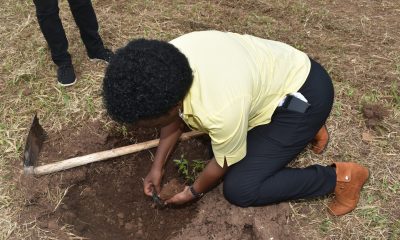

Call for Applications: QCF Postdoctoral Research Fellowships
-


Call For Applications: Annual Innovation Commercialisation Award
Business & Management
Dr. Aisha Nanyiti is IEA’s Featured Economist for Jan 2026
Published
4 weeks agoon
January 8, 2026By
Mak Editor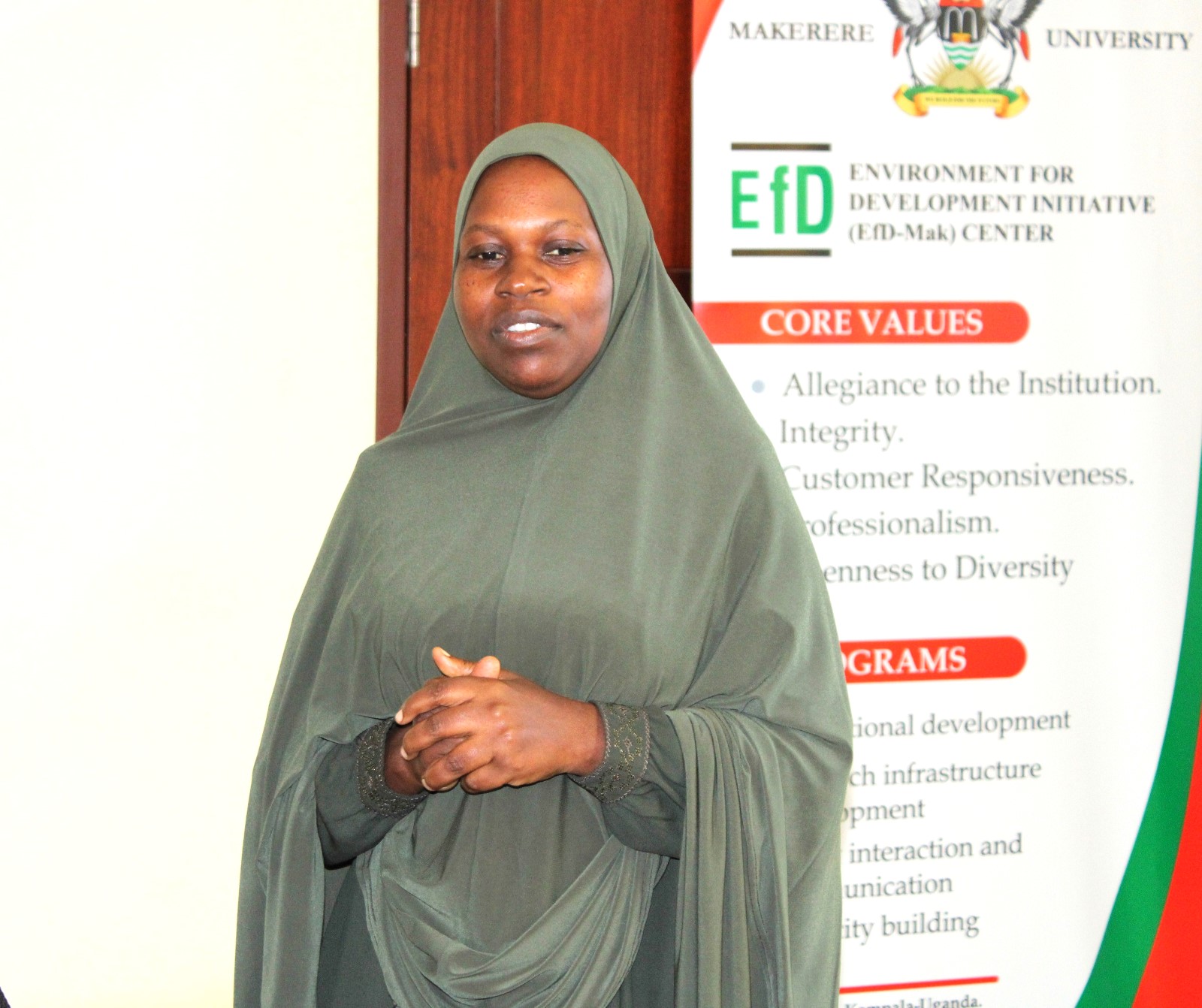
Dr. Aisha Nanyiti is a Lecturer at Makerere University’s School of Economics. She holds a PhD in Development Economics from Wageningen University, The Netherlands. Her research focuses on impact evaluation, causal inference, and behavioural economics, with expertise in Randomized Control Trials (RCTs), Lab‑in‑the‑Field experiments, and survey-based causal analysis. Aisha studies labour and financial markets, gender and women’s empowerment, poverty, and clean energy adoption, bridging rigorous evidence with real-world policy impact. She is also a Research Fellow at the Environment for Development Initiative (EfD‑Mak Centre), contributing to inclusive development and evidence-based policy in East Africa. She is the International Economic Association (IEA)’s featured economist for January 2026.
Business & Management
EfD Uganda Marks 2025 Milestones, Sets Strategic Path for 2025–2029
Published
2 months agoon
December 20, 2025By
Jane Anyango
Kampala, Uganda – December 19, 2025 — The Environment for Development (EfD) Uganda Centre at Makerere University has taken stock of its 2025 achievements and outlined its strategic direction for 2025–2029, with a strong focus on energy transition, climate change, and sustainable natural resource management.
The reflections were shared during the Centre’s annual end-of-year celebration, which brought together members of the EfD Steering Committee, deans from the School of Economics and the School of Agricultural Sciences, government officials, private sector actors, civil society organisations, researchers, and students.
Interdisciplinary Foundation Strengthens Impact
Addressing stakeholders, EfD Uganda Director, Professor Edward Bbaale, highlighted the Centre’s progress in institutional development, research, policy engagement, and capacity building. While acknowledging challenges encountered during the year, he noted that these provided valuable lessons as the Centre transitions into a new strategic phase under the EfD Strategic Plan (2025–2029).
Prof. Bbaale underscored the Centre’s unique positioning within Makerere University, noting that it is jointly anchored in the School of Economics and the School of Agricultural Sciences. This interdisciplinary foundation, he said, enables EfD Uganda to address complex development challenges such as energy transition, climate change, water resources, forestry, biodiversity, and agriculture from a holistic perspective.
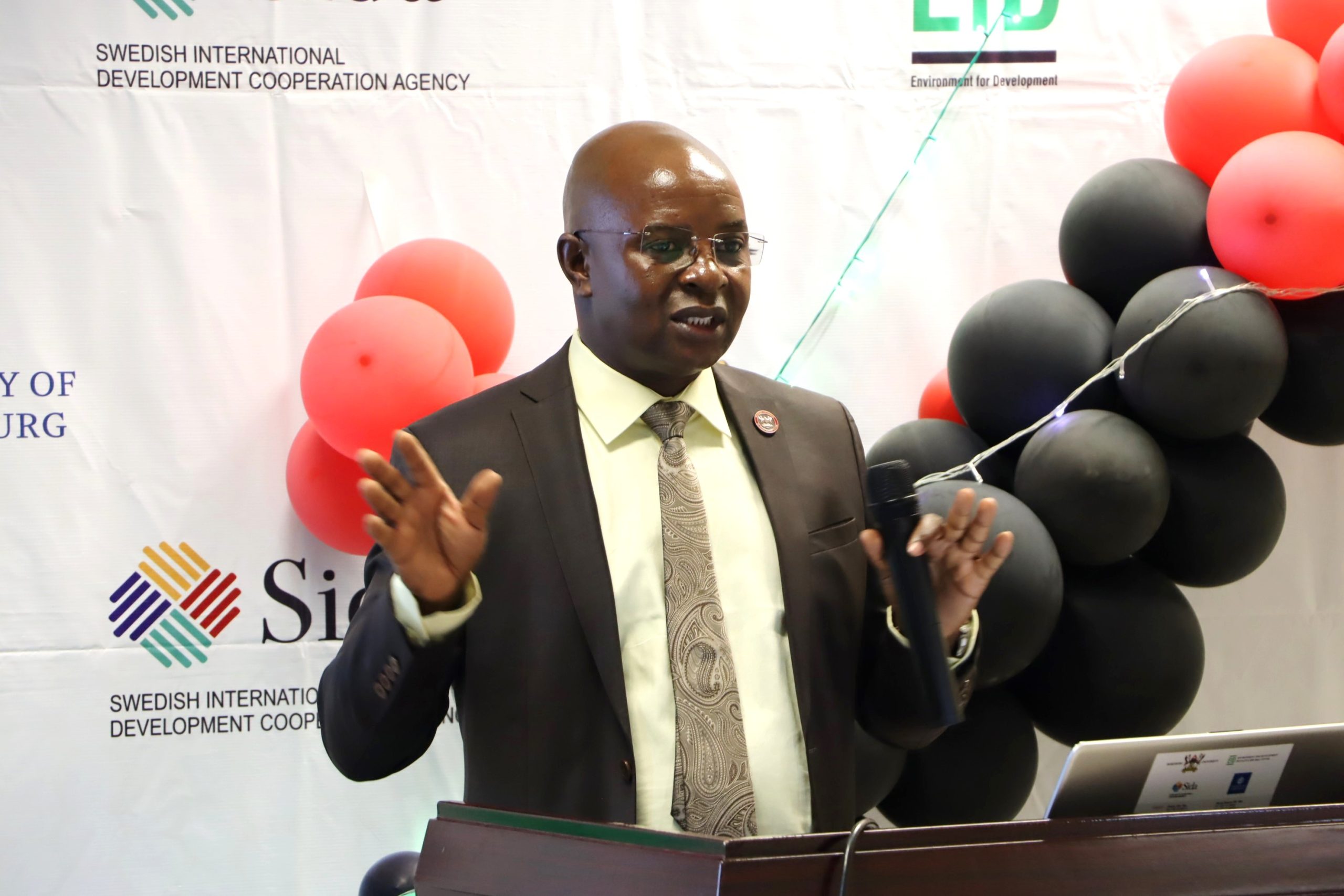
“This approach aligns with Makerere University’s policy on research institutes and reflects global trends that increasingly demand cross-disciplinary collaboration,” he said.
He further highlighted existing academic synergies, with PhD students in Economics and Agricultural Economics sharing coursework, and announced the launch of a Master of Science in Environment and Natural Resource Economics, recently approved by the National Council for Higher Education. The programme, jointly developed by faculty from both schools, is expected to strengthen training in environmental economics and natural resource management.
Strategic Direction for 2025–2029
Prof. Bbaale unveiled the Centre’s strategic plan for 2025–2029, anchored on six thematic areas: energy transition; climate change adaptation and mitigation; climate-smart agriculture; water resources management; forestry and biodiversity; and environmental quality.

He noted that climate change remains a cross-cutting issue across all themes, adding that EfD Uganda will continue to work closely with stakeholders to ensure its research informs national policy and practical interventions.
Over the next five years, the Centre’s research will focus on land use and biodiversity conservation, climate-smart agriculture, climate change adaptation and mitigation, and energy transition-areas expected to generate evidence-based solutions for Uganda and the wider region.

Key stakeholders identified for collaboration include the National Planning Authority, the Ministry of Finance, Planning and Economic Development (Climate Finance Unit), the Ministry of Agriculture, Animal Industry and Fisheries, the Ministry of Water and Environment, the Ministry of Energy and Mineral Development, and district local governments.
Major Achievements in 2025
Prof. Bbaale reported that the Centre concentrated its efforts on the three pillars of Makerere University: research, policy engagement, and training.
Policy Engagement
The Centre organised two high-level dialogues on climate-smart agriculture and a policy dialogue on e-mobility under the Inclusive Green Economy (IGE) programme.
“We chose e-mobility because it is a green mode of transport,” Prof. Bbaale said. “Through the IGE programme, we worked with senior civil servants and policymakers to explore how Uganda can transition to a greener economy.”

The programme also facilitated cross-country peer learning among Ethiopia, Tanzania, Kenya, Rwanda, and Uganda. He cited Rwanda’s rapid electrification of motorcycles through taxation and subsidies, and Tanzania’s success in universal rural electrification, as key lessons.
Capacity Building
The Centre conducted more than ten training sessions for fellows, researchers, policymakers, and graduate students. It also recruited a funded postdoctoral fellow Dr. Gemeda Olani Akuma. from Ethiopia, to work on natural capital issues.
“Postdoctoral fellows are critical to knowledge generation,” Prof. Bbaale noted. “If Makerere strengthens its postdoctoral programme, our research output will more than triple.”
He referenced benchmarking visits to South African universities with strong postdoctoral systems, noting that Makerere is steadily moving toward becoming a research-led institution.
New Projects and Institutional Growth
EfD Uganda launched five new projects and expanded its institutional partnerships during the year. These included Sida-funded initiatives, a consultancy with GIZ, the Centre’s first MakRIF-funded project, and grants from the Gates Foundation and the Carnegie Corporation.
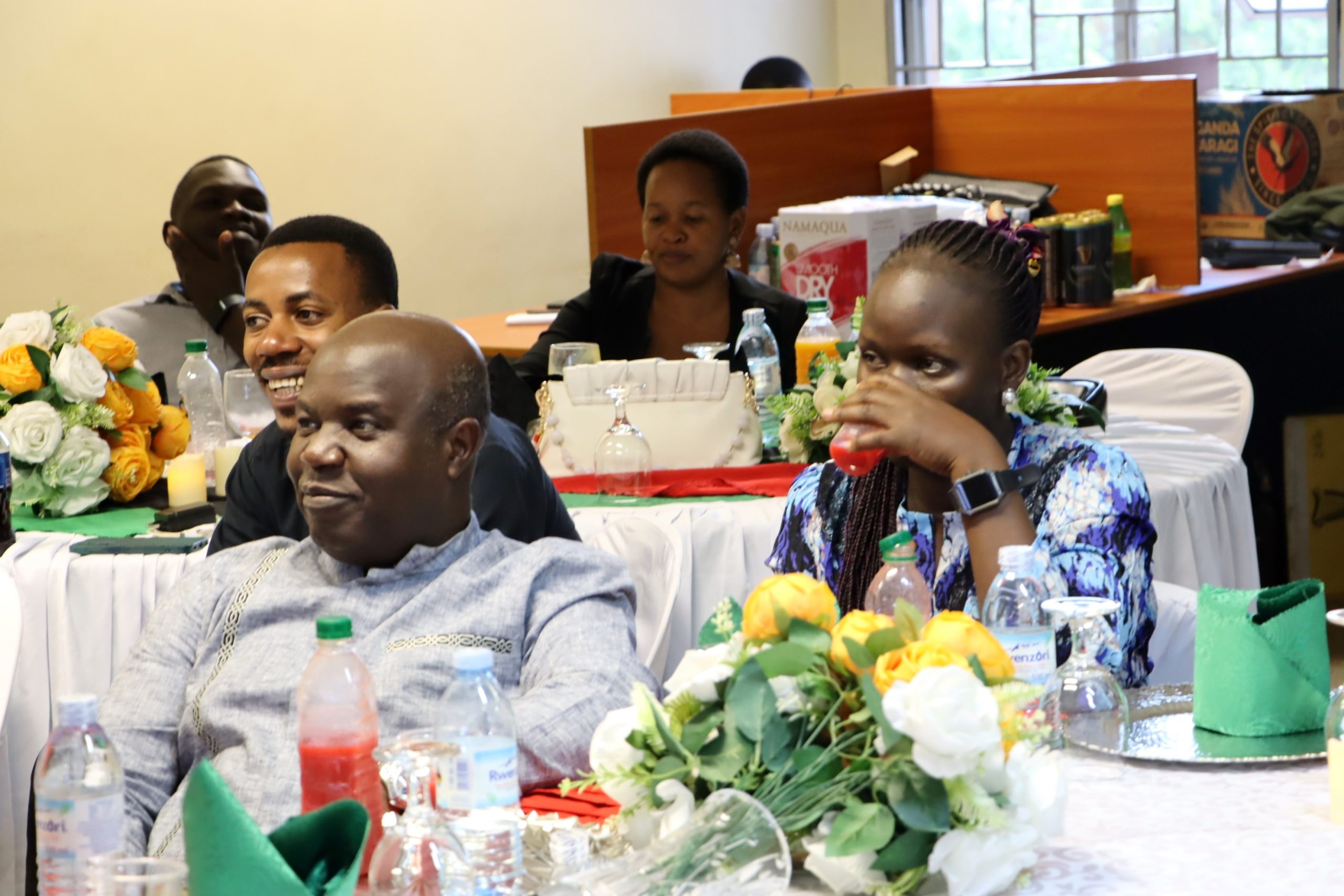
In institutional development, the Centre inaugurated 13 new advisory board members, strengthening governance and oversight. Prof. Bbaale also introduced the Centre’s core staff, praising their dedication and commitment to capacity building, including the mentorship of interns and teaching assistants some of whom have since joined institutions such as the Bank of Uganda.
Strengthening National and International Engagement
The Centre deepened collaboration with national institutions, including the National Planning Authority, the Ministry of Finance, Parliament, and the National Water and Sewerage Corporation. Among ongoing initiatives is a study aimed at improving bill payments at the utility to unlock new investments and service improvements.
EfD Uganda is also working with district local governments to build capacity in environmental valuation and natural capital accounting, supported by MakRIF funding from the Government of Uganda.. Trainings were conducted for districts in central Uganda and in Fort Portal.

At the international level, the Centre hosted visiting scholars, including Prof. Edwin Mchapondwa from the University of Cape Town, who trained government officials on community-based conservation, and Prof. Mark Purdon from the University of Montreal, who launched a book on carbon markets.
EfD’s Natural Capital Accounting Model Adopted by Government
A major highlight was the development of a natural capital accounting model, supported by GIZ and now adopted by the Ministry of Water and Environment. The Excel-based MoneyCap model, developed in collaboration with the Ministry of Finance, UBOS, and the National Planning Authority, supports policy assessment by comparing investment scenarios in natural capital.
“This places us at another level,” Prof. Bbaale said, noting that the model aligns with global climate finance discourse and Africa’s emerging coalition of finance ministers for climate action.

Prof. Bbaale warned that Uganda’s agriculture sector must urgently adapt to climate realities, citing erratic rainfall and rising temperatures. He stressed that climate-smart agriculture is critical to safeguarding livelihoods and food security.
The Centre also celebrated the graduation of a new cohort of Inclusive Green Economy Fellows, supported by Sida, and announced five new grants, including a Carnegie-funded project on household and SME energy efficiency and a grant for climate-sensitive macroeconomic modelling and the Makerere Research and Innovation Fund (MakRIF) from the Government of Uganda
Commitment to Policy-Relevant Research
In his concluding remarks, Prof. Bbaale reaffirmed EfD Uganda’s mission to generate research that delivers practical solutions for policymakers and communities.

“Our work asks a fundamental question: how much natural capital are we depleting in the pursuit of growth?” he said. “That is the frontier we are working on.”
He thanked the Centre’s team for their dedication and contributions throughout the year.
Centre Reaffirms Commitment to Collaboration
Dr. Peter Babyenda, Policy Engagement Specialist, reaffirmed EfD Uganda’s commitment to collaboration with policymakers, academia, civil society, and the media.
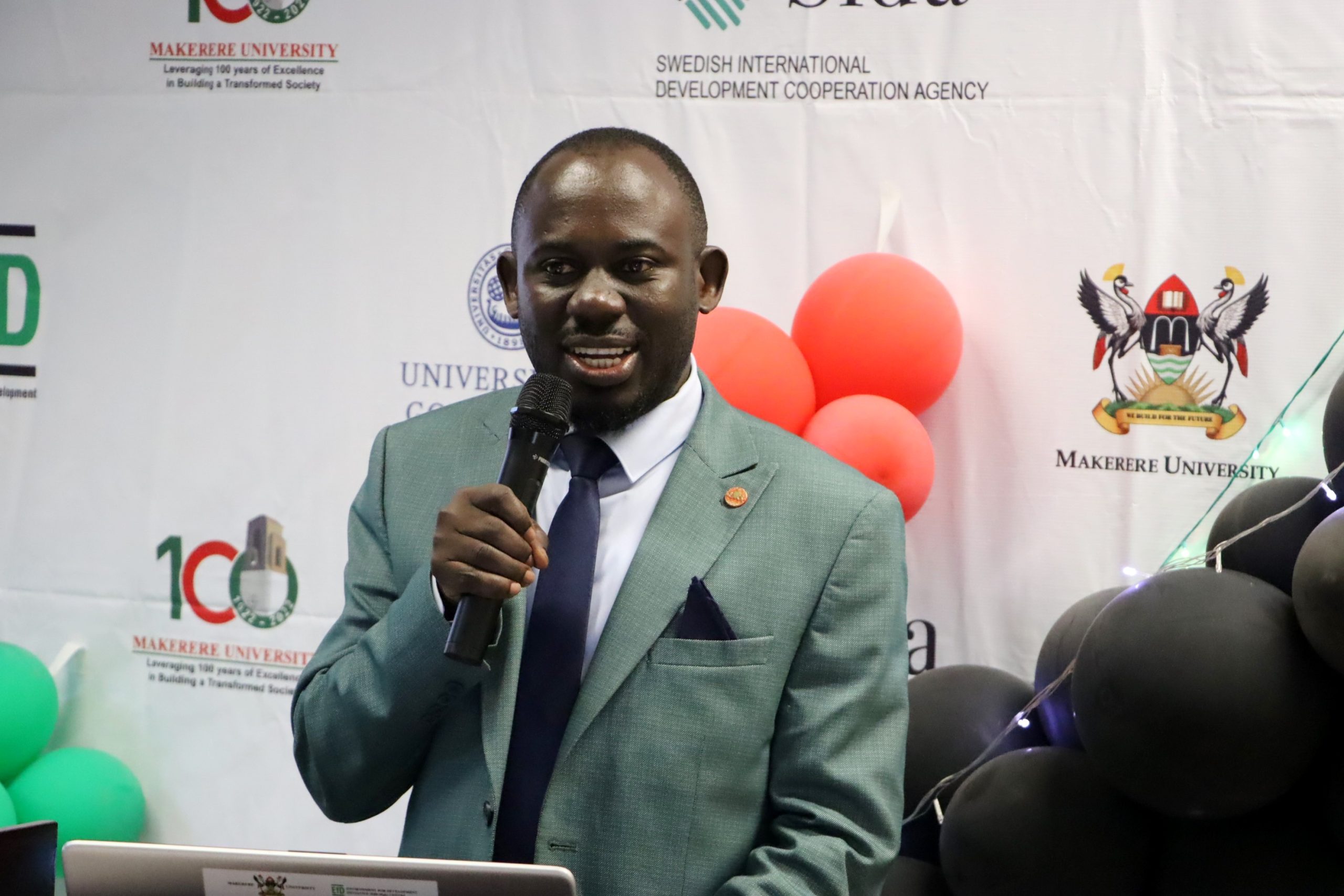
“Policy engagement includes working with the media,” Dr. Babyenda said. “We remain open to partnerships and invite stakeholders to engage with us.”
He thanked participants for attending the annual reflection event and encouraged continued networking.
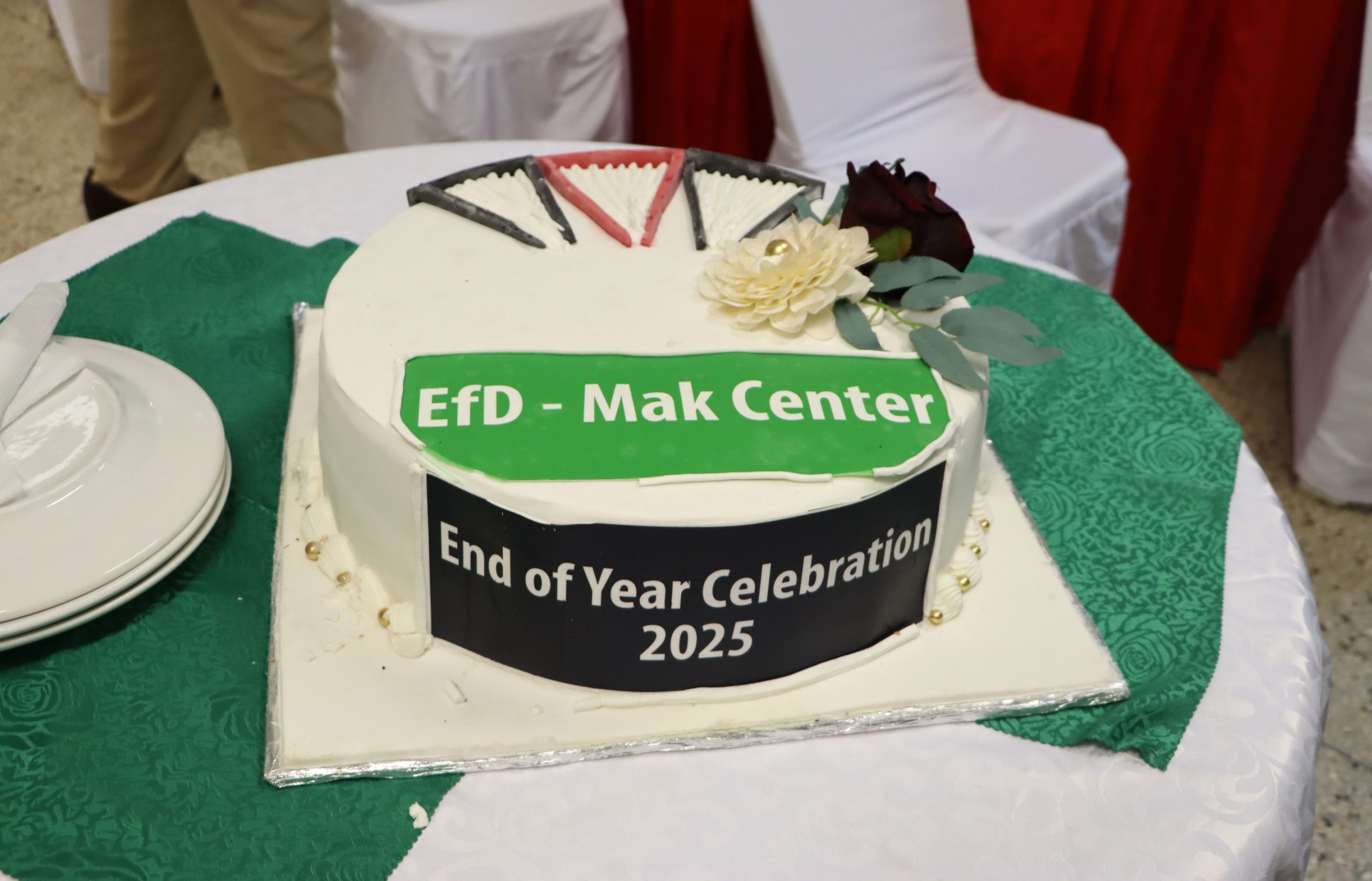
Jane Anyango is the Communication Officer, EfD-Mak Centre
Business & Management
Makerere University CoBAMS Staff celebrate 2025 achievements
Published
2 months agoon
December 19, 2025
December 18, 2025 – Coming after the successful completion of the examination season, and as the year comes to an end, the afternoon, evening and night hours of 18th December 2025, presented the best opportunity, to staff to reflect on the 2025 College of Business and Management Sciences (CoBAMS) achievements in a relaxed environment.
The ever-green Makerere University Guest House gardens provided comfort as staff continued to enjoy this lovely space situated on the Makerere University Main Campus.
The event brought together the Principal, Deputy Principal, Deans of the respective Schools, Heads of Department, academic, administrative, technical and support staff, as well as guests, in a mix of celebration, networking, and recognition.

The end of year staff get-together provided a platform to strengthen collegial relationships, and reflect on the College’s future direction. In the true sense of networking, the event also featured dance competitions amongst staff.
Recognition of CoBAMS staff who received the Vice Chancellor’s Excellence Awards 2025

A key highlight of the event featured recognition of the ten (10) members of staff from CoBAMS who received the Vice Chancellor’s Excellence Award 2025. These included: Early Career Scholar Category-Namugenyi Christabellah and Dr. Richard Ssempala, Mid-Career Scholar Category-Dr. Peter Kisaakye, Dr. Anthony Tibaingana, Dr. John A. Mushomi, and Dr. Kasimu Ssendawula, Senior Career Scholar Category-Dr. Stephen O. Wandera, and the Best Teachers Category-Dr. Patricia Ndugga, Dr. Faisal Buyinza and Mr. Fred Kasalirwe.
Presenting the CoBAMS Awards amidst applause from members of staff, the Deputy Vice Chancellor (Academic Affairs)-Prof.Sarah Ssali flanked by the Deputy Principal of the College, Associate Professor James Wokadala read a special message: “Your dedication elevates the standards of the College of Business and Management Sciences and brings distinction to Makerere University.”
Collective Achievements and Strategic Priorities

Professor Edward Bbaale, Principal of CoBAMS, in his end-of-year message, acknowledged the dedication of all staff and their contributions to the college’s success. “I sincerely thank all colleagues across our academic, research, administrative, and support units for your relentless dedication to advancing the mandate of the College. Your collective efforts remain the backbone of our success and institutional resilience,” he said.
Prof. Bbaale highlighted notable achievements in research and publications, congratulating staff who received the Vice Chancellor’s Excellence Awards and Best Teacher Awards. “These achievements reflect individual distinction and collective pride for our College. I encourage you to sustain this excellent performance,” he said. He further recognised faculty who secured research grants from Mak-RIF, international development partners including the Gates Foundation, UN-PAGE, GGGI, the World Bank, and Erasmus+, noting that such successes reflect growing global trust in CoBAMS scholarship.
The Principal underscored the college’s role in fostering institutional growth and partnerships. “I appreciate colleagues who have initiated and advanced Memoranda of Understanding with domestic and international partners. These platforms strengthen relevant academic training, impactful research, and policy engagement,” he said.
He highlighted new academic programs responsive to Uganda’s economic and societal needs, emphasising the college’s forward-looking and development-oriented approach.
Prof. Bbaale praised initiatives promoting staff welfare and cohesion, including the CoBAMS Physical Fitness Programme and the Mak-CoBAMS SACCO.
On infrastructure development, the Principal noted, “Government has allocated resources to commence the CoBAMS Infrastructure Expansion Project, and the University Council has approved two strategically located plots of land for its implementation. We shall actively engage the design consultant to ensure the buildings meet our teaching, research, innovation, and policy-engagement needs.”
He concluded his remarks by acknowledging life’s challenges alongside successes, extending condolences to staff who lost loved ones in 2025 and seasonal greetings: “As we step into 2026, I wish you and your families a year filled with God’s abundant blessings, good health, professional fulfilment, and personal joy. Merry Christmas and a Happy New Year to all.”
DVC Academic Affairs praises Research, Innovation, and Integrity
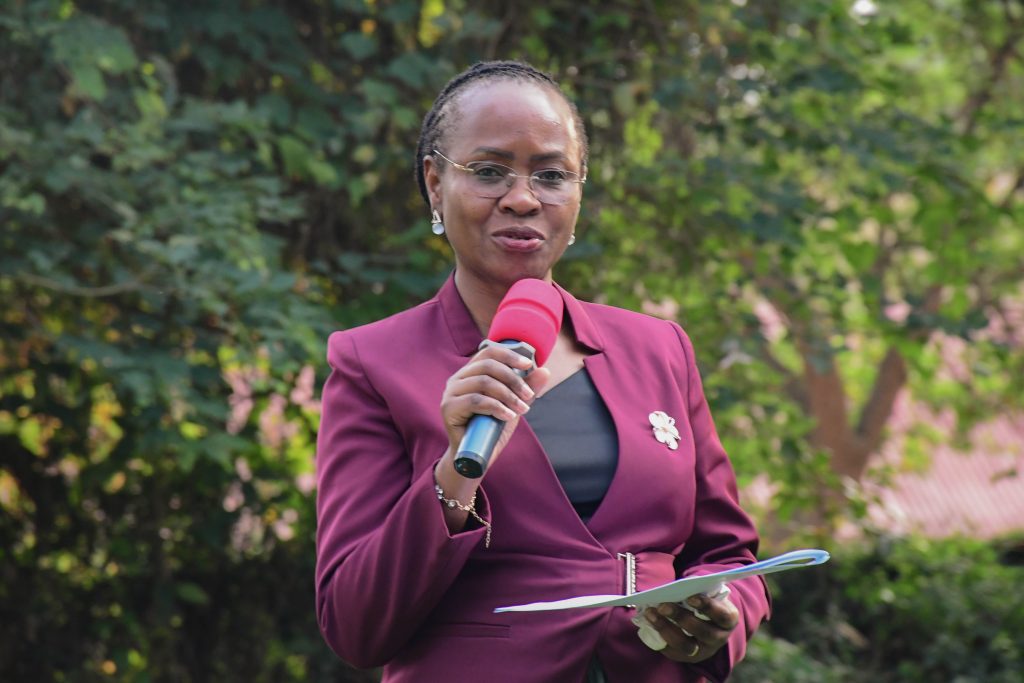
The Deputy Vice Chancellor for Academic Affairs, Professor Sarah Ssali, praised CoBAMS for its contribution to Makerere University’s strategic goals.
She extended warm greetings from the university management, including the Vice Chancellor, and underscored the importance of every staff member’s role. “Whatever role you play, you are adding a brick to this institution, just as those before us did,” she said.
Prof. Ssali highlighted the college’s research-led initiatives, emphasizing the importance of postgraduate and doctoral programs as a pipeline for academic excellence. “I commend CoBAMS for taking this seriously. Your work reflects the university’s strategic direction and internationalisation,” she said.
She noted the recent launch of the CoBAMS Working Paper Series and encouraged its development into four journals in economics, business, statistics, and planning in the near future. “This will allow graduate students to actively contribute, mentoring the next generation of scholars while strengthening Africa’s knowledge production and decolonising knowledge,” she explained.
The DVC Academic Affairs acknowledged CoBAMS for innovative approaches to research and value addition. “During the Entrepreneurship Expo, your work with coffee demonstrated how one thematic area can generate multiple products—from coffee oil to bath scrubs—showing creativity and value addition. Similarly, demography and population studies contribute crucial expertise, from census data to electoral processes,” she said.
Prof. Ssali encouraged the college to document and develop indigenous knowledge systems. “Your role as a college is to study local economic models, explore African-informed business and economic practices, and produce scholarship that reflects local realities,” she said.
She congratulated faculty members who secured research grants, published in peer-reviewed journals, or served as editors, noting that these achievements reflect both individual excellence and the academic culture of CoBAMS.
Reflecting on the Professor Emmanuel Tumusiime-Mutebile Centre of Excellence at Makerere University and the research promoted by the Tumusiime Mutebile Foundation, Prof. Ssali called for rigorous development of the initiative. “While research chairs focus on individual scholarship, Centres of Excellence build pipelines of knowledge for future generations, preserving the legacy of scholars namely Dr Mutebile in monetary policy, finance, and banking,” she said.
Networking and Teamwork
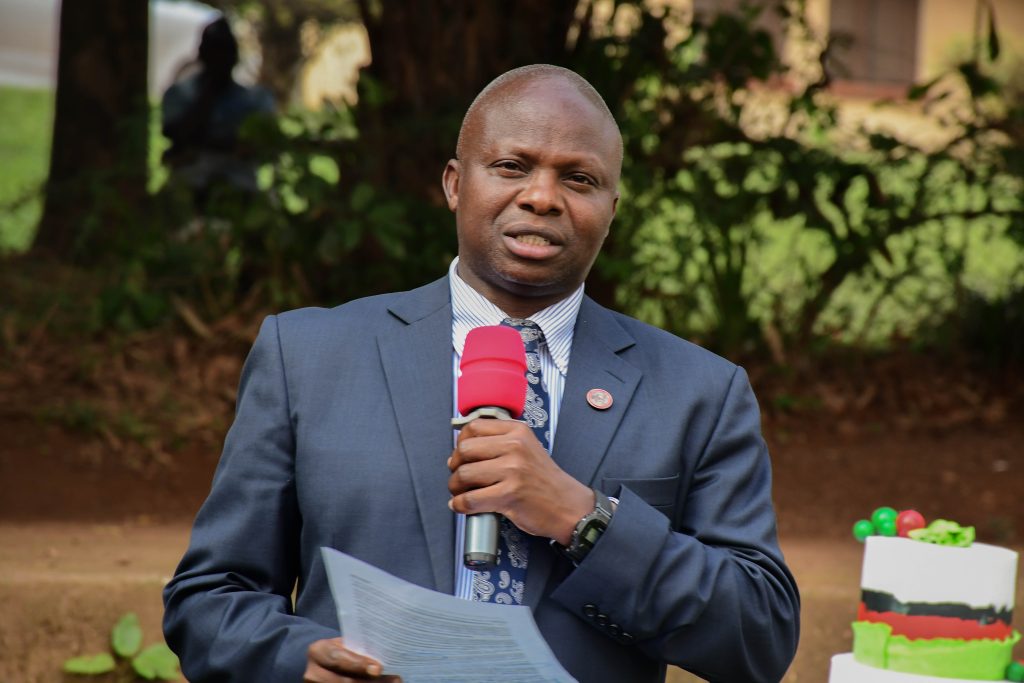
In his address, Associate Professor James Wokadala, the Deputy Principal of CoBAMS, emphasized the importance of networking and teamwork. “Today is a day for networking. This is a time to connect socially, celebrate, and reaffirm our commitment to serve Makerere University and, specifically, our College.”
He applauded staff for supporting the college’s teaching, learning, research, and student mentorship activities. He highlighted CoBAMS’ innovative initiatives, including the CoBAMS SACCO and the CoBAMS fitness club, which promote teamwork, wellness, and collegiality.
He thanked the event organisers for their efforts and acknowledged those who have supported administrative processes, such as fast-tracking promotion applications. He called upon staff to continue collaborating to serve Makerere University, the nation, and humanity.
Staff Appreciate the get-together moments
Charmed by the spirit of celebration, dance competitions amongst staff, and the choice of trending music, a significant number of staff stayed at the venue until the party came to a complete stop at 10:00p.m.
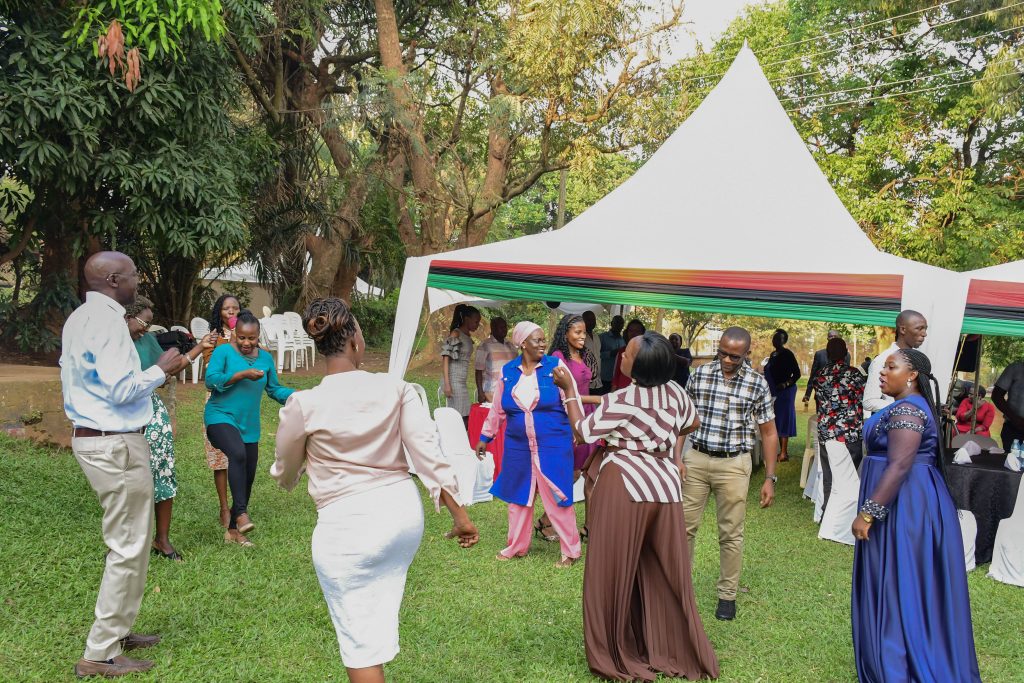
The following day (19th December 2025), the rejuvenated staff took to the College WhatsApp platform, and wrote messages, acknowledging being refreshed, feeling nice and young again. They requested the College leadership to plan for more of such engagements that promote teamwork, collegiality and good health.
Trending
-

 General1 week ago
General1 week agoPress Statement: Makerere University Congratulates Former Staff and Students on Successful Election to Public Office
-

 General6 days ago
General6 days agoPress Statement: Makerere 76th Graduation Ceremony
-

 General1 week ago
General1 week agoRe-Advert for the Position of the Second Deputy Vice Chancellor
-

 General2 weeks ago
General2 weeks agoMak Hosts NCHE Competence-Based Education Standards Validation Meeting
-
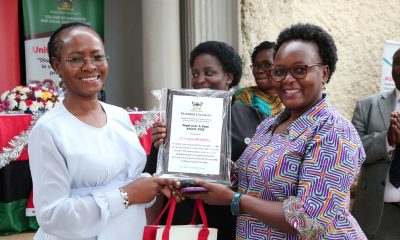
 Humanities & Social Sciences2 weeks ago
Humanities & Social Sciences2 weeks agoDr. Pamela Khanakwa Honored for Steering Record 18 PhD Candidates for the Mak 2026 Graduation
